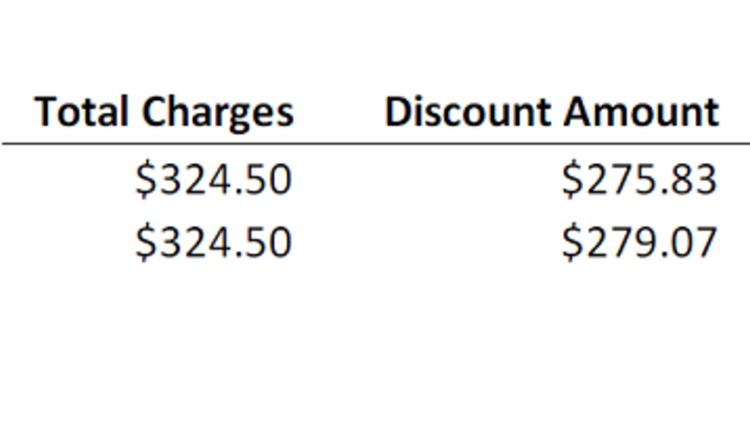There is an increasing emphasis these days on continuing education, both to succeed in the logistics & transportation field and to maintain professional competence, whether through face-to-face interaction or distance learning programs. And the CEU is a widely recognized method of quantifying the value of those educational experiences.
Generally, a CEU is defined as ten hours of participation in a recognized continuing education program, with qualified instruction and sponsorship. CEU records provide evidence of completion of continuing education requirements mandated by certification bodies, professional societies, licensing boards, and governmental agencies. A CEU (sometimes also known as a Continuing Education Credit - CEC) may be earned through continuing professional development (CPD) activity or continuing professional education (CPE) activity where individuals maintain, develop, and enhance their skills and knowledge.
Professional certification, trade certification, or professional designation, often called simply certification or qualification, is earned by a person to assure qualification to perform a job or task. Major Supply Chain examples, many of which require or recognize CEUs to maintain certification, include:
- CPSM, C.P.M - Institute for Supply Management (ISM)
- CTL, PLS, GLA, DLP - American Society of Transportation & Logistics (AST&L)
- CPP, CPPM - American Purchasing Society (APS)
- MCIPS – The Chartered Institute of Purchasing & Supply (CIPS)
- MILT, CMILT, FCILT – The Chartered Institute of Logistics and Transport (CILT)
- EJLog, ESLog, EMLog - European Logistics Association (ELA)
- CML, CPL – The International Society of Logistics (SOLE)
- JrLog, Log, SrLog - China Federation of Logistics & Purchasing (CFLP)
- FHKLA, MHKLA - Hong Kong Logistics Association (HKLA)
- CPIM, CSCP – The Association for Operations Management (APICS)
- CITT - Canadian Institute of Traffic & Transportation (CITT)
A word of caution: the term CEU is in the public domain and any organization may award a traditional CEU without accreditation. An employer or other organization must therefore decide on an individual basis whether to honor traditional CEUs earned from a training provider. However, professionals seeking accredited CEUs should locate Authorized Providers (APs) through the International Association for Continuing Education and Training (IACET), a non-profit association dedicated to quality continuing education and training programs. IACET only accredits providers that meet the strict ANSI/IACET 1-2007 Standard, which is the core of thousands of educational programs worldwide. Only Authorized Providers that meet IACET's internationally recognized standards may award IACET CEUs.
According to IACET, one (1) CEU equals ten (10) contact hours of learner interaction with the content of the learning activity, which includes classroom, self-paced instruction, pre/post assignments, and/or homework in support of a learning outcome in an organized continuing education experience that provides responsible sponsorship, capable direction, and qualified instruction. For example, a two day seminar with 5½ hours of instruction each day is valid for 1.1 CEUs, while a three-day seminar with 7 hours each day is valid for 2.1 CEUs, and a one-day, 8 hour seminar is valid for only .8 CEUs.
Hoping this helps you achieve your professional development and continuing education goals.
Thomas L. Tanel, CTL, C.P.M., CISCM, is the President and CEO of CATTAN Services Group, Inc., specializing in Logistics and Supply Chain issues. He is also the Chair of ISM’s Logistics & Transportation Group and can be reached at tanel@cattan.com or (979) 260-7200. Membership in the Group is open to all ISM members who are responsible for or have an interest in the Logistics & Transportation fields. This article part of the monthly series authored by ISM’s Logistics & Transportation Group Board Members, who are current practitioners, consultants and educators. In future columns they will continue sharing their views on a number of Supply Chain topics.
Generally, a CEU is defined as ten hours of participation in a recognized continuing education program, with qualified instruction and sponsorship. CEU records provide evidence of completion of continuing education requirements mandated by certification bodies, professional societies, licensing boards, and governmental agencies. A CEU (sometimes also known as a Continuing Education Credit - CEC) may be earned through continuing professional development (CPD) activity or continuing professional education (CPE) activity where individuals maintain, develop, and enhance their skills and knowledge.
Professional certification, trade certification, or professional designation, often called simply certification or qualification, is earned by a person to assure qualification to perform a job or task. Major Supply Chain examples, many of which require or recognize CEUs to maintain certification, include:
- CPSM, C.P.M - Institute for Supply Management (ISM)
- CTL, PLS, GLA, DLP - American Society of Transportation & Logistics (AST&L)
- CPP, CPPM - American Purchasing Society (APS)
- MCIPS – The Chartered Institute of Purchasing & Supply (CIPS)
- MILT, CMILT, FCILT – The Chartered Institute of Logistics and Transport (CILT)
- EJLog, ESLog, EMLog - European Logistics Association (ELA)
- CML, CPL – The International Society of Logistics (SOLE)
- JrLog, Log, SrLog - China Federation of Logistics & Purchasing (CFLP)
- FHKLA, MHKLA - Hong Kong Logistics Association (HKLA)
- CPIM, CSCP – The Association for Operations Management (APICS)
- CITT - Canadian Institute of Traffic & Transportation (CITT)
A word of caution: the term CEU is in the public domain and any organization may award a traditional CEU without accreditation. An employer or other organization must therefore decide on an individual basis whether to honor traditional CEUs earned from a training provider. However, professionals seeking accredited CEUs should locate Authorized Providers (APs) through the International Association for Continuing Education and Training (IACET), a non-profit association dedicated to quality continuing education and training programs. IACET only accredits providers that meet the strict ANSI/IACET 1-2007 Standard, which is the core of thousands of educational programs worldwide. Only Authorized Providers that meet IACET's internationally recognized standards may award IACET CEUs.
According to IACET, one (1) CEU equals ten (10) contact hours of learner interaction with the content of the learning activity, which includes classroom, self-paced instruction, pre/post assignments, and/or homework in support of a learning outcome in an organized continuing education experience that provides responsible sponsorship, capable direction, and qualified instruction. For example, a two day seminar with 5½ hours of instruction each day is valid for 1.1 CEUs, while a three-day seminar with 7 hours each day is valid for 2.1 CEUs, and a one-day, 8 hour seminar is valid for only .8 CEUs.
Hoping this helps you achieve your professional development and continuing education goals.
Thomas L. Tanel, CTL, C.P.M., CISCM, is the President and CEO of CATTAN Services Group, Inc., specializing in Logistics and Supply Chain issues. He is also the Chair of ISM’s Logistics & Transportation Group and can be reached at tanel@cattan.com or (979) 260-7200. Membership in the Group is open to all ISM members who are responsible for or have an interest in the Logistics & Transportation fields. This article part of the monthly series authored by ISM’s Logistics & Transportation Group Board Members, who are current practitioners, consultants and educators. In future columns they will continue sharing their views on a number of Supply Chain topics.





